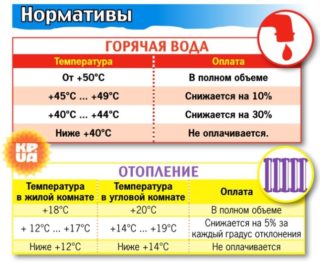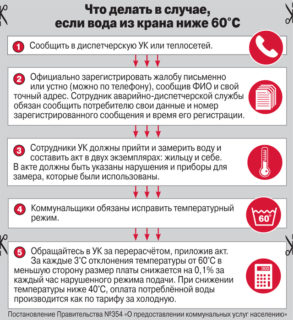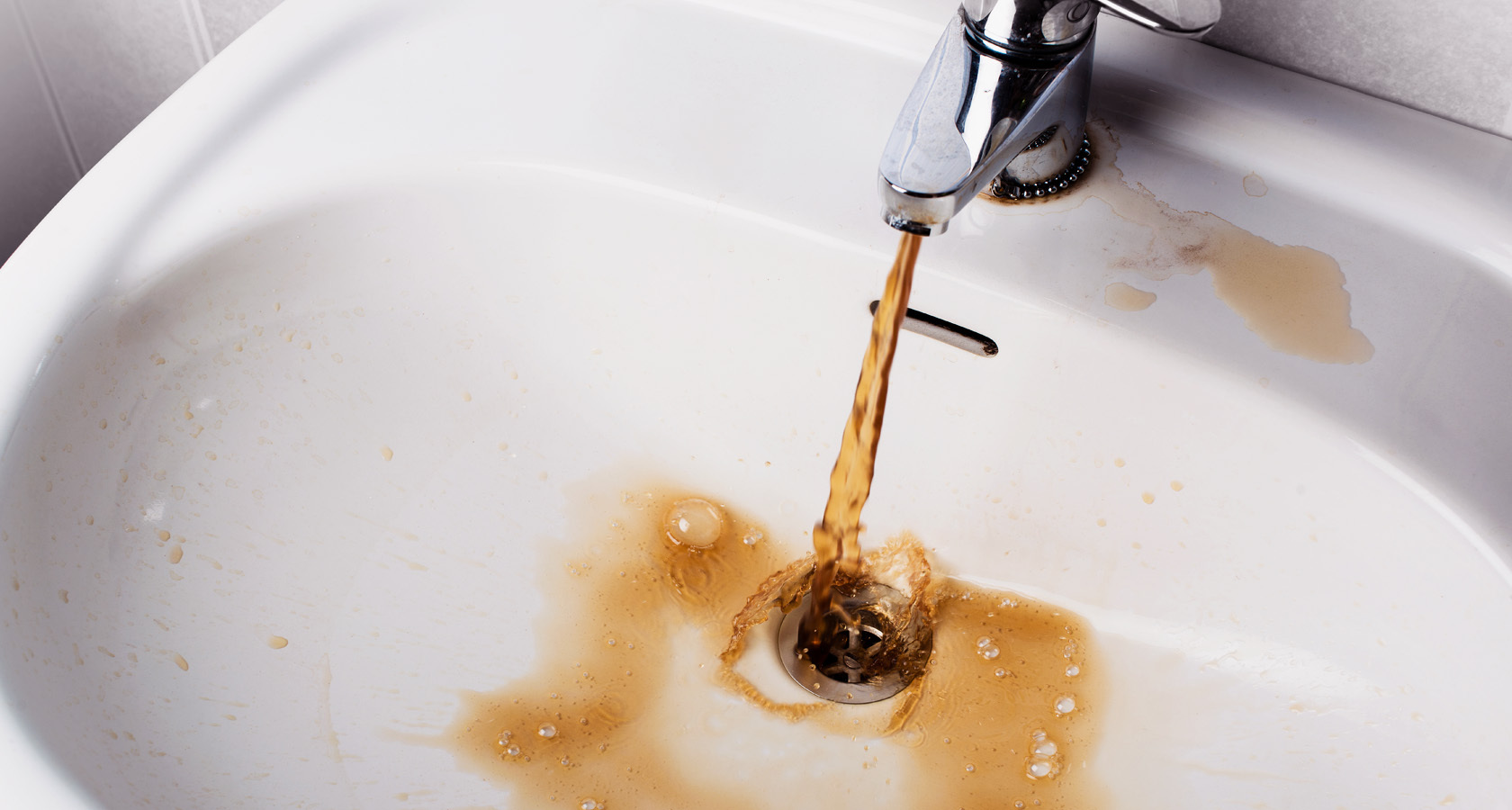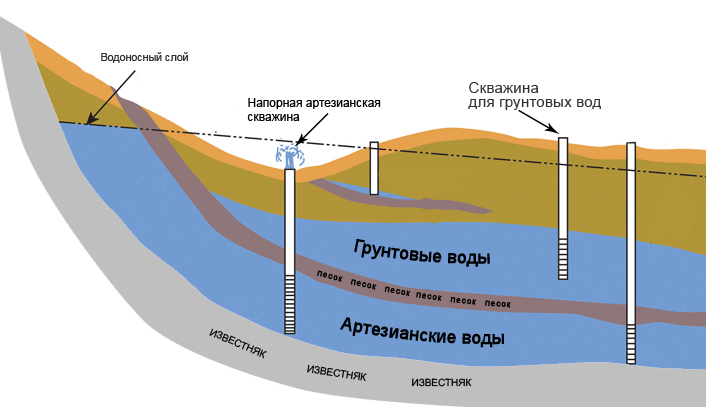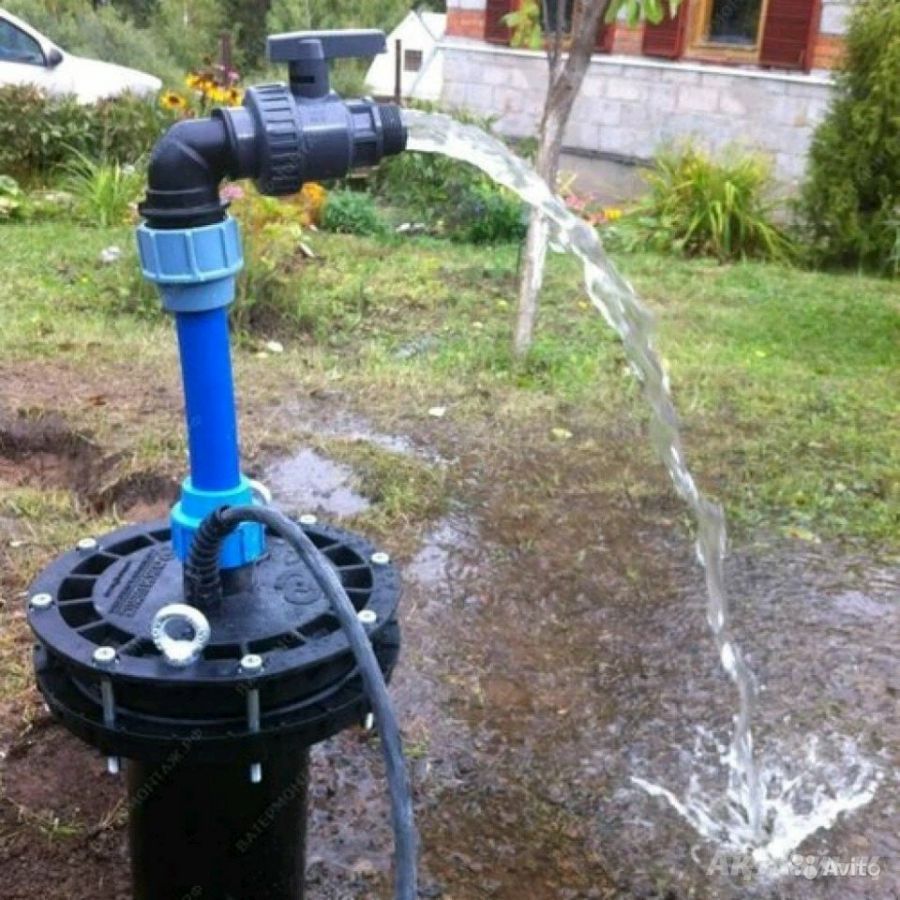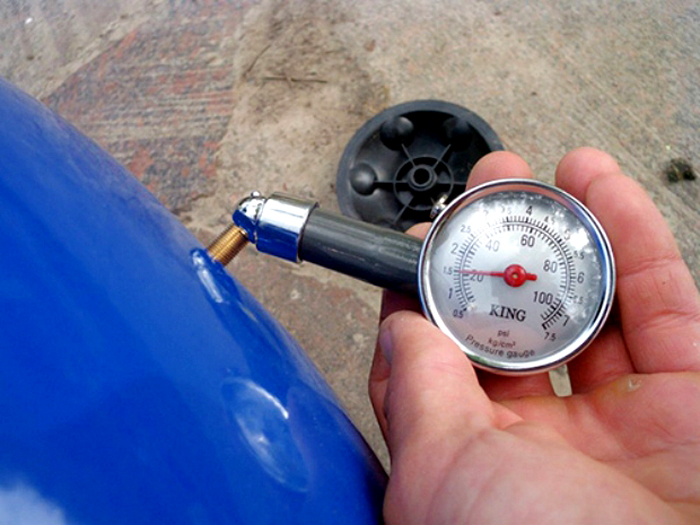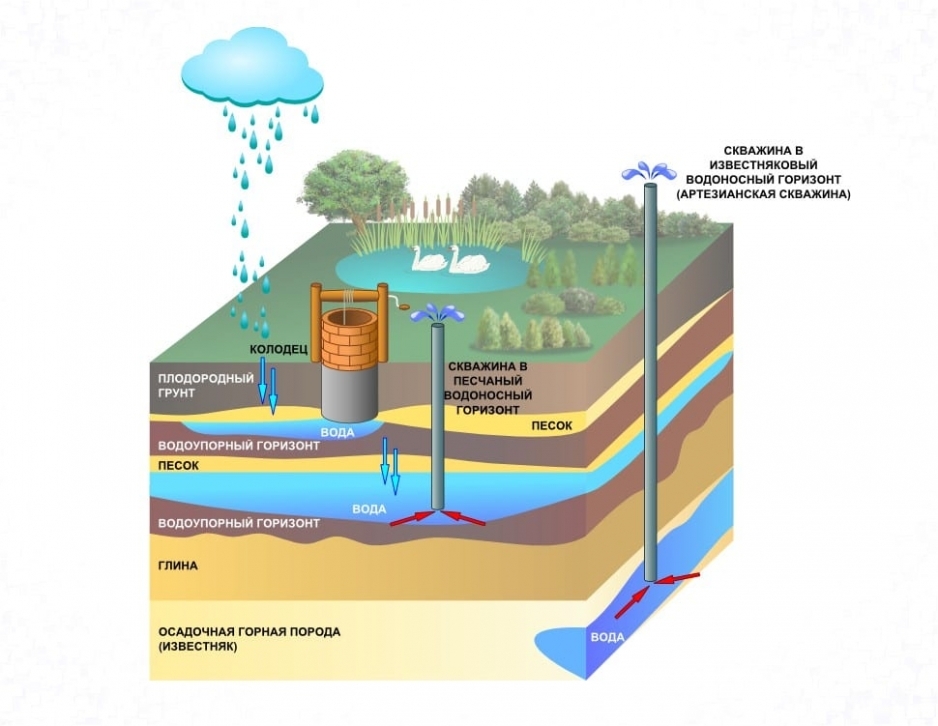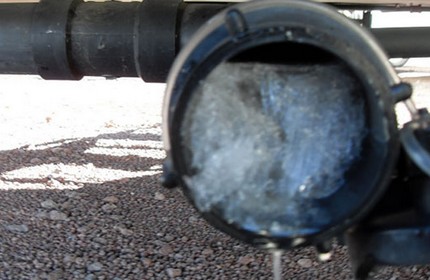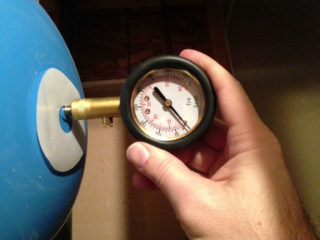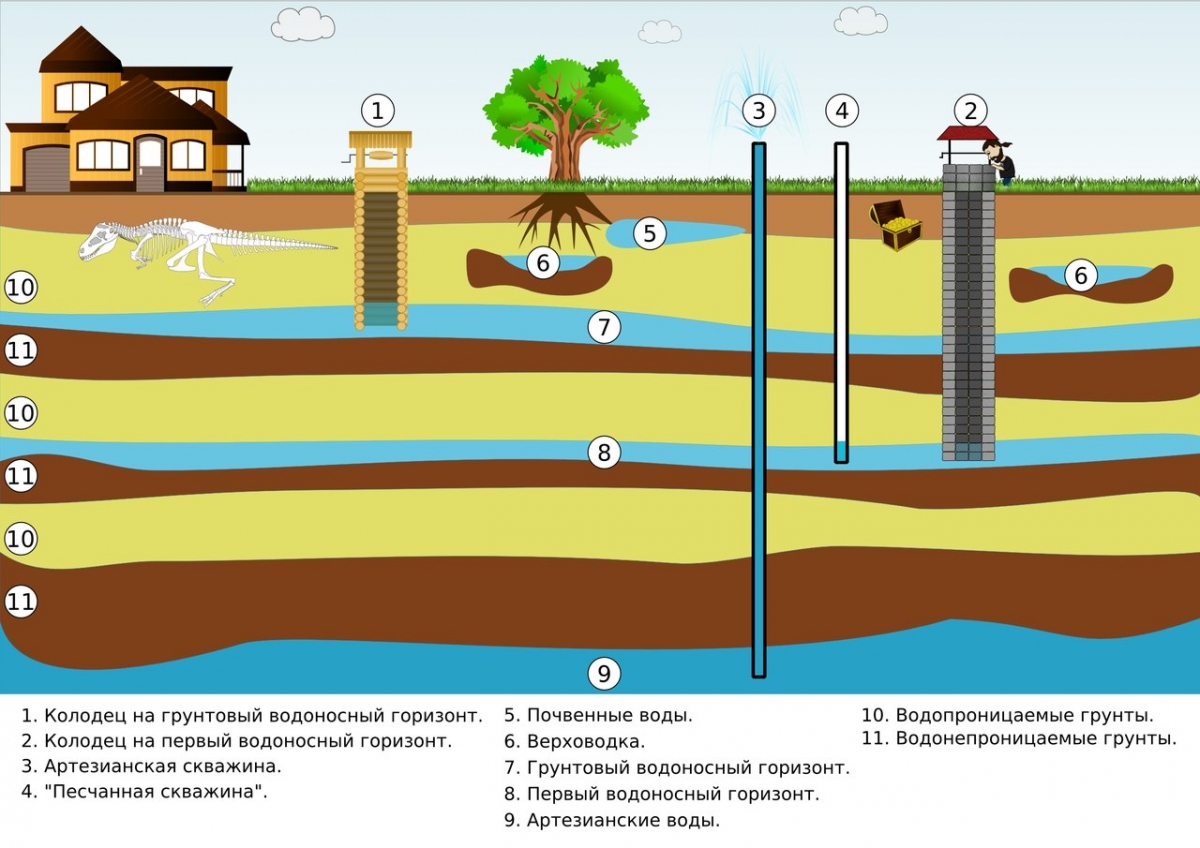One of the factors for a comfortable life in an apartment building is the constant supply of hot water. The liquid must meet sanitary and construction requirements, including in terms of temperature conditions. If the regulations are violated, consumers have the right to hold accountable those who oversee the building's water supply.
Hot water supply temperature standards
The maximum temperature of the liquid that enters the water intake point should not be more than 75 degrees, otherwise it can burn a person. In addition, excessively heated liquid damages the parts of the water supply system, especially if they are made of polymer materials.
Barely warm water is also not the norm. The calculation of the minimum temperature indicator is based on the type of water supply system. If it is open, the value is 70 degrees, closed - 60 degrees. The first criterion is higher, since the networks have greater heat transfer during operation.
The temperature of hot water in the water supply system is less than the permissible standards can lead to the development of pathogenic microorganisms in it - pathogens of infections.
Permissible deviations
Regulatory requirements provide for a small temperature fluctuation:
- from 12 am to 5 am, a decrease of five degrees is possible;
- during the day - only three degrees.
In addition, there is a temperature schedule that provides for the heating of water at the outlet of the boiler room or CHP according to the season. During winter cold weather, this value increases in order to make up for heat loss in heating devices and create comfort for living - not lower than 18 degrees.
If the hot water supply in a multi-storey building does not meet regulatory requirements, a claim must be filed with the Criminal Code of the building.
Temperature measurements in the DHW system
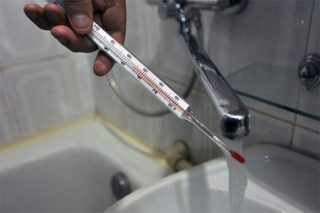
In order to induce public utilities to take action, it is necessary to measure the temperature of the water in the in-house hot water supply system before filing a claim.
- Open the tap and drain for three minutes.
- Fill any reservoir with flowing fluid. Do not block the flow, let the water flow over the edges.
- Place an ordinary household thermometer in the tank.
- Record the maximum performance.
To check, choose evening time or a cloudy day, since when the air is heated by the sun, the water in the DHW system will also be warmer.
If the temperature values do not correspond to the standards, you must contact the housing department. The dispatcher will accept the application and establish the reasons - most likely, deviations have arisen due to malfunctions in the main pipeline or during the execution of planned work. If there are no temporary problems, write a claim to the Criminal Code. There they must respond to it no later than two hours after treatment.
The specialist will conduct a second temperature measurement and draw up an act, which, if a discrepancy is detected, will become the basis for recalculation for the service not provided.
Usually the employees of the Criminal Code try to disown water consumers and send them to the heat supply organization.But in most cases, the issue should be decided by the management company. After all, the organization supplying heat resources is only responsible for transporting the coolant to the distribution unit of the in-house network.
If the Criminal Code does not take any measures, contact the Housing Inspectorate or the prosecutor's office. To confirm complaints about the quality of public services, you will need to organize an independent examination at your own expense, and then set a claim to the management organization for reimbursement of its cost.
According to Federal Law No. 195, persons who caused violations are subject to fines: in the amount of 500 to 1000 rubles for officials, and from 5 to 10 thousand rubles for the company itself.
Possible reasons for non-compliance
Temperature indicators may depend on whether the system is a dead-end or circulation system. In networks of the first type, in the absence of water intake, the liquid in the pipes will inevitably cool down. Its cooling rate can be reduced by thermal insulation of the filling.
Also, unforeseen circumstances may arise, due to which the temperature standards for supplying hot water to consumers are not observed. These include:
- an accident on the heating main that serves a residential building;
- equipment breakdown;
- work on prevention and repair.
In these cases, no recalculation is made. But the time interval for solving such problems should not be more than eight hours a month and four hours at a time. Only in case of a serious accident, repairmen are given a day to fix it.
Residents of a house with a centralized hot water supply system need to record all violations, including changes in coolant indicators. If the water supply is interrupted, it will be necessary to inform the emergency dispatcher.
Recalculation of payment for DHW
There is a column in the receipt for services that adjusts the amount of payment for the given reason. The difference that appears after recalculation is offset against subsequent payments.
The reduction in the amount of payment is carried out on the basis of a user application and an act of detected inconsistencies.
When submitting an application for recalculation, you will need to indicate:
- in the upper right corner - the name of the Criminal Code and your data;
- in the body of the claim - the reasons on the basis of which the recalculation is required;
- below - a list of annexes to the application - acts, protocols, if any;
- at the very bottom - the number and signature.
It is possible to reduce the cost of payment for hot water supply and cold water supply if the housing has been empty for more than five days. But this option is possible if payments are calculated according to regulatory indicators, without metering devices. You will also need documentary confirmation - tickets for transport, if you were away, or a certificate from a medical institution in case of hospitalization.
The time for recalculation is five working days. If the Criminal Code does not agree with the claim, they are obliged to provide the owner with a reasoned refusal in writing no later than a month after the appeal.
By making payments to utilities, the consumer wants to receive a quality service. And he has the right to demand compensation if it is not provided. You should not let things go by themselves if, instead of hot water in the tap, there is hardly lukewarm water.
Knowing the temperature standards for hot water supply, you can try to influence the organizations that are utility providers and force them to recalculate. If this does not work, feel free to contact the prosecutor's office or court.

